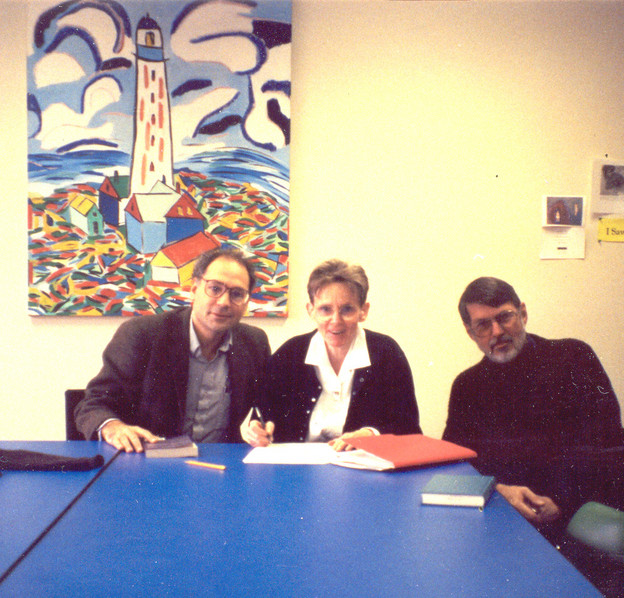
Buffalo Poetics Program's 20th anniversary

Robert Creeley, Susan Howe, Dennis Tedlock, Raymond Federman, and I (working with Robert Bertholf in the poetry collection) started the SUNY-Buffalo Poetics Program 2o years ago. Our founding moment was more an act of will and imagination than a bureaucratic act; we came into existence by declaring ourselves a program.
In honor of our anniversary, PennSound has archived just about all the of the existing readings from the Buffalo poetry series I coordinated for the 13 years I was there: Wednesday@4 Plus. You can list to the scores upon scores of readings at the Buffalo Poetics page at PennSounound.
The founding core faculty introduced the program with this statement:
While poetics suggests a long history of laws of composition, poetics stresses poiesis — the actual making or doing: poetry as process. Every doing carries the potential of something new, emergent, something not already predicated by poetics. Practice overtakes theory, practice changes theory. And not just writing practice, but performance practice, the practice of sound.
To write is to produce meaning and not reproduce a pre-existing meaning. To write is to progress and not remain subjected (by habits or reflexes) to the meaning that supposedly precedes language. To write is always first to rewrite, and to rewrite does not mean to revert to a previous form of writing, no more than an anteriority of speech, or of presence, or of meaning. The book creates meaning, and meaning creates life (and not vice versa). Fiction or poetry is never about something, it is something. Writing is not the living repetition of life. The author is that which gives the disquieting language of fiction or poetry its unities and disunities, its knot of coherence and chaos, its insertion into the real. All reading is done haphazardly. Now some people might say the situation (of poetry and fiction) is not very encouraging but one must reply that it is not meant to encourage those who say that!
Poetics “an unruly, multisubjective activity”; the reading of poetry, just as the writing of poetry, is beyond the control of any authority. Poetics opens the space of a page to interplay and contradiction, to many voices, a complexity of words. A poet brushes scraps of themes against the continuum of history. Language surrounds chaos. Poetry brings similitude and representation to configurations waiting from forever to be spoken. A poet is writing from inside the opening where the writing subject disappeared without writing. The search for traces is a polyphony of stories.
Ethnopoetics is not simply the poetics of exotic others but calls attention to the ethnicity — the particularity and nongeneralizability — of all poetic practices. Oral poetry is best thought of as something not older than or prior to or simpler than the written, but as something that goes on coexisting with, and interacting with, the written. We consider both alphabetic and nonalphabetic writing codes of the historical past and imaginary codes of a potential present.
Poetics stays grounded in the fact of making, the complex of that which has so made such “it,” inside and out, the intimately present (oneself, like they say), else the vastness of all possible dimension. “To measure is all we know …” Such reference proposes world in all its times and places, in determined labors of common body, constructs of passage and echo. “Only the imagination is real …” (As in New England — to work …)